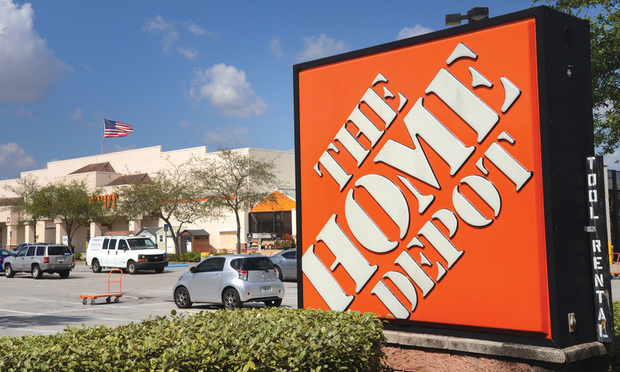That rare dynamic at a federal agency post-election has put Buerkle on the losing side of CPSC votes to push forward with new regulations and finalize settlements, highlighting her aversion to steep financial penalties on companies. The Home Depot settlement provided the latest example of how Trump’s pick to lead the CPSC would prefer to take a lighter hand on companies.
Buerkle was the lone dissenter in the commission’s 4-1 vote to approve the Home Depot settlement, which was supported by Republican Commissioner Joe Mohorovic. Buerkle wanted to reduce the penalty amount from $5.7 million to $1 million. The commission as of Tuesday morning had not issued any news release about the settlement.
Eric Rubel, an Arnold & Porter Kaye Scholer partner in Washington and former general counsel to the CPSC, represented Atlanta-based Home Depot in the settlement. He wasn’t immediately reached for comment Tuesday.
“Home Depot enters into this agreement to settle this matter without the delay and avoid the unnecessary expense of litigation,” the Federal Register notice said. The company did not admit any of the agency’s allegations.
A spokesman for Home Depot said Tuesday that the company “fixed a process glitch that allowed a relatively small number of recalled products to be sold through various channels,” including salvage, a point-of-sale system used for special orders and product donations. “In fact, only 2,300 sales were made out of more than more than 5 billion transactions over the four-year period,” the spokesman said.
The company said there were no reported injuries.
Forecasting the Future of the CPSC
Buerkle has made no secret of her qualms with high settlement amounts. In the past six months, she has been the lone vote against a $5.8 million settlement with Keurig Green Mountain Inc. and a $5.2 million settlement, which were both based on allegations that the companies failed to immediately report safety risks posed by their products.
In a statement last year in May, Buerkle said she had voted in favor of only three of the dozen civil penalties assessed in the previous two years. “One might think that I oppose civil penalties as a matter of course, but actually my opposition has been for a variety of reasons,” she said.
Among the reasons cited: a lack of transparency and consistency in how CPSC staff arrive at penalty amounts.
“All else equal, I would think that a company that reports before any serious injury has occurred should be subject to a lower penalty than a company that waits until an injury has occurred,” she said. “Similarly, I would think that a company with a history of noncompliance with reporting requirements would be subject to a higher penalty than one who has a perfect track record.”
According to the CPSC, Home Depot notified the agency in May 2015 that it had sold or transferred to logistics centers about 600 units of seven different recalled products. Six months later, the CPSC and Home Depot issued a joint press release announcing that the retailer had sold 2,310 units of 28 separate recalled products between 2012 and November 2015.
But Home Depot continued selling units of recalled products, along with other products that were recalled after the 2015 press release, according to the CPSC. In total, the CPSC staff found that Home Depot sold or distributed at least 2,816 units of 33 different recalled products.
“Home Depot sold and distributed recalled products because Home Depot’s procedures failed to accurately identify, quarantine, and prevent the sale, offer for sale, and distribution of the recalled products,” the CPSC said.



